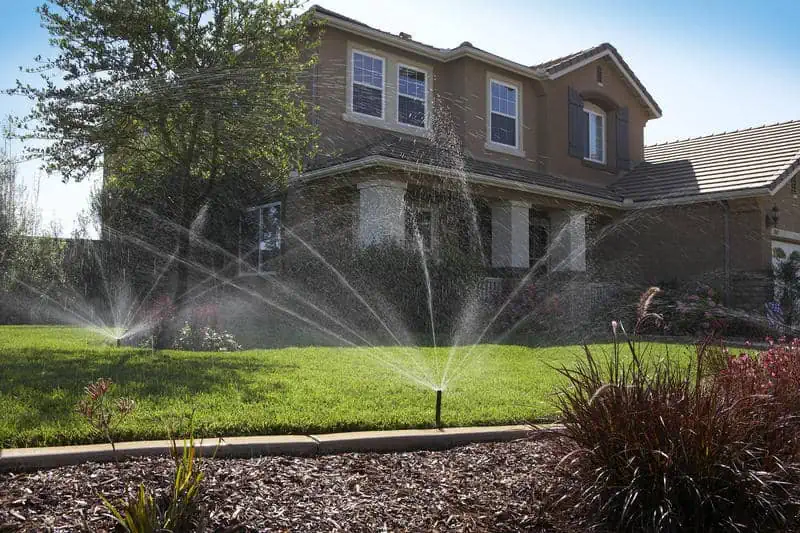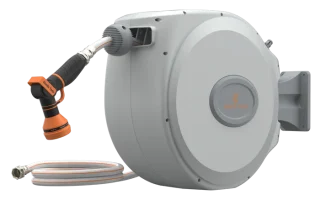The sun’s intense heat can strip your landscape of vibrancy and leave your lawn thirsty. Watering your property on a schedule can help prevent drought-like conditions and keep your lawn healthy.
Irrigation Enhances Plant Health
Regarding residential irrigation, irrigation companies specialize in designing, installing, and maintaining irrigation systems for lawns, gardens, and landscapes. Keeping plants healthy requires consistent, regulated watering to ensure they receive the proper moisture. Rather than dragging a hose around the yard haphazardly, irrigation systems deliver water precisely where it needs to go for maximum absorption and minimal waste.
Overwatering compacts soil and promotes shallow root growth, while under-watering turns lush green into yellow and encourages fungal disease. Properly maintained sprinklers, spray heads, and drip systems deliver hydration where needed most, reducing disease, promoting deep roots, and ensuring optimal plant health.
Irrigation is the artificial distribution of water on agricultural land to satisfy crop water requirements without harming the soil resource or degrading downstream surface waters. It helps to ensure adequate and consistent plant moisture levels, increases crop yields, and enables cultivation in areas with seasonal rainfall patterns. It also facilitates nutrient management by providing fertilizers to reach the plant roots, maximizing their effectiveness. Irrigation has been used in agriculture for centuries.
Irrigation Boosts Curb Appeal
Irrigation enhances curb appeal and can help businesses gain an edge when attracting customers.
A well-maintained landscaping design can improve the appearance of a property and boost its value, making it easier to attract tenants or buyers in the future. This is especially true regarding irrigation services, which can transform a dull, overgrown landscape into an attractive and healthy one.
Irrigation techniques like bubblers soak a small area so the water reaches shrubs and trees’ roots, while spray heads fan water across the lawn for uniform saturation. It helps to minimize evaporation and conserve water resources. Irrigation also supports using organic mulch to retain moisture, suppress weeds, and regulate soil temperature. It can even reduce the need for fertilizers by promoting healthier soil.
Irrigation Saves Time
Irrigation is used to grow crops and maintain landscape plants, especially in dry areas or during droughts. It is also employed to cool livestock, reduce dust, dispose of sewage, and support mining operations.
Manually watering your lawn and landscaping can be a tedious task. Dragging the hose or sprinkler around the property can take hours and is difficult to get just right. Having an irrigation system helps to save time and allows you to spend your free time doing other things you enjoy.
An irrigation specialist can create a comprehensive system that optimizes the watering process for your landscape. A proper irrigation system considers your climate, soil type, and plant species and will ensure that your outdoor space receives the ideal amount of water each week. It alleviates the problem of over or under-watering, which can harm your yard’s health and aesthetics.
Irrigation Reduces Water Usage
Unlike dragging out the hose and watering haphazardly, an irrigation system delivers regulated water to your lawn, trees, shrubs, flowers, and gardens. It ensures your plants receive the proper water to grow and thrive.
Irrigation aids crop growth and productivity, reduces the risk of food shortages during dry times or drought, and sustains agricultural activities in regions with low or unpredictable rainfall. Producing crops is a crucial component in poverty reduction in rural areas as it is closely linked to income and employment.
However, irrigation has its challenges. Irrigation systems must be carefully designed to balance the needs of the soil and crop with water availability. An intelligent water management strategy involves understanding the weather forecast and soil moisture levels, adjusting irrigating times, avoiding over- or under-watering, promoting a high percentage of plant-available water, and using alternative sources of irrigation such as recycled water, groundwater, desalinated water, and drainage water.







